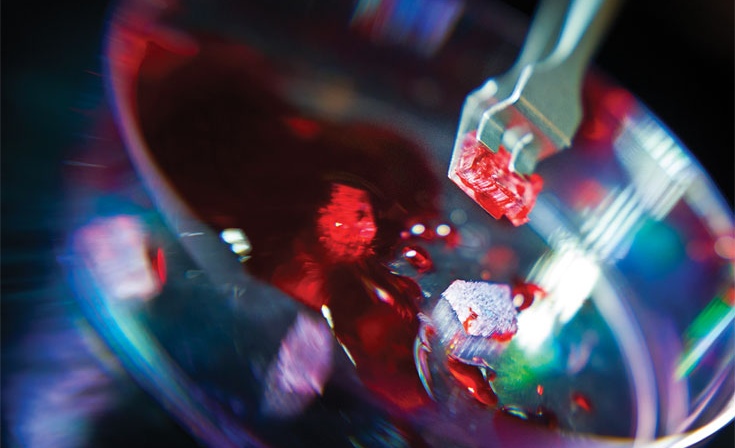
Molecular Detectives
Artificial nanopores aid disease discovery
Summer 2012 · Comment ·
Tiny technology is having a big impact on cancer detection. Electrical engineering Assistant Professor Samir Iqbal and his interdisciplinary research team are building nanopores made of silicon to detect “bad molecules” that may indicate cancer and other diseases.
“We know many variants of certain chemicals and the abnormal amounts of others. These chemicals tell us if someone is subject to certain diseases,” Dr. Iqbal explains. “Now we will be able to detect these variants at extremely small amounts and in a portable system format. We’ll be able to detect even a few hundred copies of bad molecules to identify risks of diseases like cancer. That is very, very early detection.”
To detect the bad molecules, Iqbal’s team runs blood-derived samples through the nanopores, which are about 1,000 times smaller than a human pore or hair, and measures the reaction between them and the ions of blood. Then they compare the data with other non-reactive nanopores to determine abnormal levels of particular chemicals.
Through the research, scientists hope to determine similar differences at the molecular level, before the bad variants of new molecules cause devastating effects. This would help identify what cancer and other diseases look like at the molecular level.
The researchers also believe the nanopore technology detection could gauge air or water quality.
“It’s thrilling that we can have a small, broadly applicable platform that will be usable in a variety of areas,” says Purnendu “Sandy” Dasgupta, the Jenkins Garrett Professor of Chemistry and Biochemistry.
Richard Timmons, Distinguished Professor of Chemistry, is also working on the project, which has received funding from the National Science Foundation.





















Great work Mr. Iqbal. i hope it will sort out many problems related to cancer, and the facility will be mobilized soon.